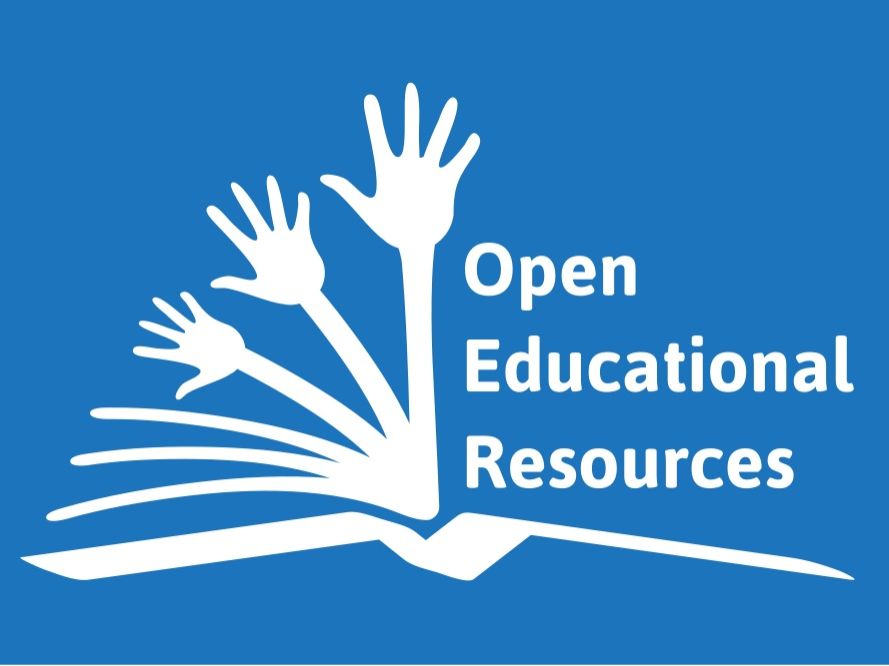Open Educational Resources can help us move beyond the traditional textbook and enhance academic freedom

The subject of Open Educational Resources (OER) is becoming more prominent in higher education, especially in times of need to rapidly switch to online teaching and learning. Belonging to the umbrella of Open Science, OER can be best described as teaching, learning and research materials in any format or medium that reside in the public domain or under an open license, and can be retained, revised, remixed, reused and redistributed free of charge, without technological or financial restrictions (2019 UNESCO Recommendation on OER). These features of OER (coined by David Wiley as 5R activities) are essential for an efficient and sustainable transition to blended education and, more ambitiously, to open education that would be accessible to and inclusive of all.
Open Educational Resources encompass a variety of materials that span from open textbooks to massive open online courses (MOOCs), video-clips, test banks, syllabi, case studies and lecture notes, to name a few. You can easily find openly licensed simulations, presentations, images, mind maps and podcasts and embed them into your course as part of the core or auxiliary materials. One of the advantages of OER is that they enable educators to reuse or create innovative and learner-centered resources while taking into account the variety of students’ needs and learning goals. In this way, you do not have to rely on a single standardized textbook and generic learning outcomes prescribed by its authors. Furthermore, OER can serve the purpose of enhancing the academic freedom of educators and students while contributing to access to quality education and broader social justice.
Where can you find these resources?
There are numerous online platforms that host vast OER collections, so we advise to structure your quest and start by exploring the following resources:
- Dedicated search engines: Mason OER Metafinder, Oasis, CC Search;
- OER repositories: Merlot, OER Commons;
- Open textbook collections: Open Textbook Library, LibreTexts, OpenStax;
- Multimedia libraries: Pixabay, Europeana, Sketchfab.
Furthermore, you can narrow your search down and browse numerous thematic collections relevant to your discipline, for instance:
- Medicine: Free Books 4 Doctors, Open-i;
- Science: FreeTechBooks, PHET Interactive Simulations;
- Mathematics: Grasple;
- Psychology: NOBA;
- Art History: AHTR.
While exploring these and other resources, do keep in mind the importance of the copyright issue: OER will always be either published under an open license with certain conditions (the most popular one is Creative Commons) or belong to the public domain. Moreover, our everyday browsing tools and multimedia repositories such as Google, YouTube and the like also have integrated license filtering options (available via the advanced search settings) and can, therefore, be successfully used for finding OER in your area of interest.
Are you ready to go a step further and produce your own OER?
This can be easily done by licensing your work, be it an academic publication, textbook, lecture slides, exam questions or recorded video-clip, with an open license. The tool Creative Commons License Chooser helps you select an appropriate license for your educational material. It is important to keep in mind that, unlike in the case of research publications, the University of Groningen (UG) owns the copyright to all educational resources created by its staff members, unless agreed otherwise. The UG encourages open sharing and non-commercial (re)use of such materials.
Get all the OER support you need at the UG Library
The UG Library is actively engaged in building services to support teachers in the area of OER and related copyright issues and stimulate the use of OER in their teaching. Namely, we have launched an OER information point that comprises a LibGuide on OER, support through dedicated email and online workshop for teachers on redesigning courses with open materials (view the recording and slides of the first session). The online workshop has been developed by education specialists from the UG Library and ESI in cooperation with our national partners from SURF and has been successfully piloted as a webinar for UG teachers. We are now developing a similar thematic workshop for the education support staff in order to raise their awareness of this topic and equip them with tools to better support teachers in enriching their courses with open materials. Furthermore, we are exploring the possibility to launch an open textbook publishing project together with the University of Groningen Press and are engaged in a few national initiatives on building a Netherlands-specific OER repository (SURF Sharekit) and a relevant search engine (SURF Search Portal).
Interested in further exploring the area of OER and open licensing, enriching your courses with quality open materials and connecting with experts in this area? The UG Library education specialists are available for information, individually tailored advice and support at oer-library rug.nl.
About the author
Link: https://libguides.rug.nl/oer


